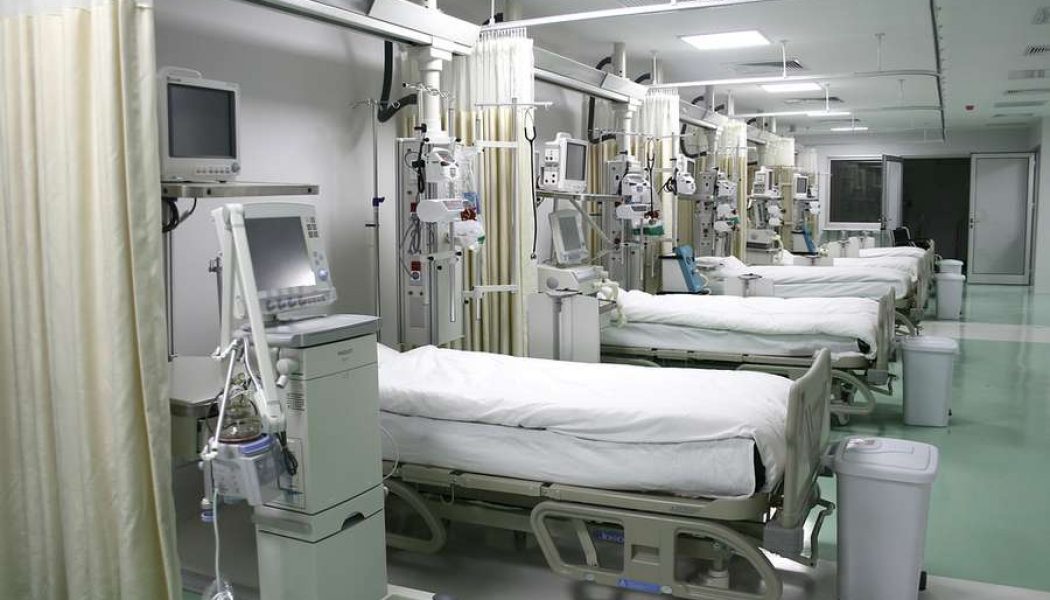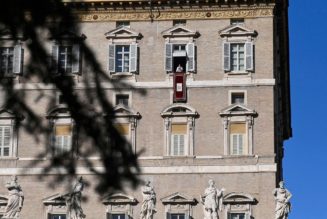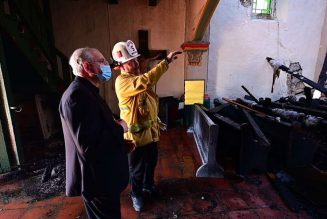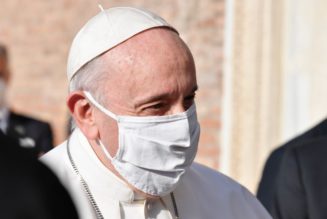
.- As the coronavirus pandemic spreads across the United States, the ministry of hospital chaplains is essential for patients and health care professionals. One New York priest told CNA on Thursday that hospitals are the front line for saving souls, as well as lives.
“The hospital situation in the last five to ten years is one of the best places that we are doing evangelization,” Fr. John Anderson of ArchCare, a health care ministry of the Archdiocese of New York, told CNA March 19.
“A lot of folks we see haven’t seen a priest, or been in a church in five, ten, 15, maybe even longer, years,” he said. “So when we train priests for hospital ministry, we really talk a lot about welcoming people back, being hospitable. And we certainly want that to continue during this crisis.”
Fr. Anderson oversees the 25 priests who serve as hospital chaplains in the Archdiocese of New York, and is the vice president for mission integration at ArchCare, a “post-acute delivery system” that serves 9,000 people per day in settings including nursing homes, an advanced long-term care program for Medicaid enrollees, and a specialty hospital.
As the new coronavirus pandemic progresses, hospital chaplains are in ever-greater demand. The number of confirmed cases of the virus jumped to more than 14,000 in the U.S. on Friday morning, with scientists warning the number is likely much higher due to a widespread lack of testing.
New York has been one of the states hardest-hit by the crisis, with more than 5,700 confirmed cases of COVID-19 and 38 deaths as of Friday morning, according to the Johns Hopkins University Coronavirus Resource Center.
“In about 42 days, we’re expecting the virus to really hit us,” Fr. Anderson said Thursday. According to New York’s Governor Andrew Cuomo, as many as 110,000 hospital beds could be needed by early May to deal with the expected spike in new coronavirus cases, but only 53,000 beds currently exist.
While chaplains are ministering to patients right now, they face a unique challenge, because they lack the personal protective equipment (PPE) that would allow them to have a face-to-face encounter with sick patients.
Hospitals have been restricting use of the limited PPEs, such as N95 respirators, face masks, and gowns, to nurses, physicians, and aides, even though “every hospital system would love to have their chaplains visiting face-to-face people with COVID-19,” he said.
“We are having a difficult time with the sacrament of the anointing of the sick” because of the lack of PPE, he said.
While other sacraments, such as confession, can be administered by priests from a slight distance, “that sacrament in particular can only be given by a priest, and it actually has to be the anointing.”
The “biggest thing” for many priests, Fr. Anderson said, has been the prohibition on priests offering public Masses. For “a lot of us,” he said, “that’s a big deal, to be honest with you.”
“That’s what I miss more than anything, is just being able to have Mass with the different groups of folks that I celebrate Mass with.”
Chaplains have also had to help people cope with the stress of the ever-growing pandemic.
“Peoples’ anxiety, stress, worry, has been high,” Anderson said, and chaplains are now preparing for a “tsunami” of COVID-19 patients expected in coming weeks.
Yet “priests have been amazing so far” in still ministering to patients and those requesting the sacraments, he told CNA.
“They don’t think twice when someone comes to the door, or even to go to the home, someone’s home,” he said, which is why archdiocesan priests will be participating in a webinar on Friday with the chaplains’ chief medical officer.
The webinar will hopefully inform priests of measures they can take to protect themselves so they “can still be compassionate, but know enough” to put on protective equipment.
“At the end of the day, our job is to bring the sacraments to people and to comfort them, and to comfort their families,” he said. “That’s what it’s all about.”







